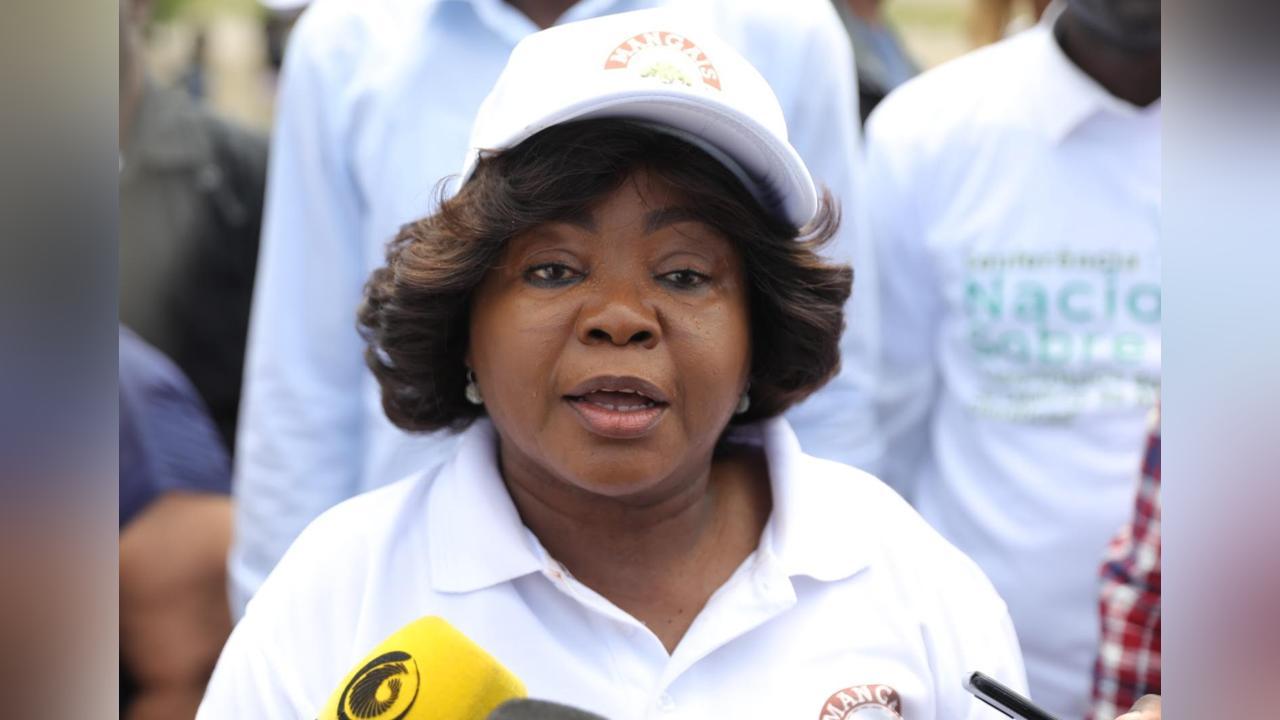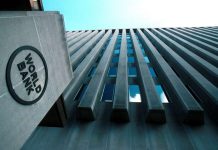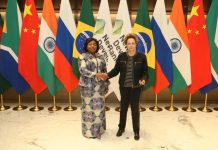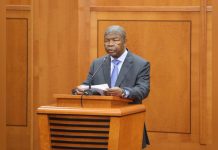Africa-Press – Angola. The Vice President of the Republic Angola, Esperança da Costa, on Tuesday in Shanghai, People’s Republic of China, emphasized the fact that culture constitutes one of the fundamental pillars in the construction of the identity of any people and plays a decisive role in the affirmation of nations on the global stage.
Esperança da Costa, who was speaking at the 8th World Culture Conference in Taihu, highlighted that the meeting’s motto “Mutual Learning Among Civilizations and Chinese Modernization”, reflects the urgency of an ecumenical and intercultural dialogue, capable of combating cultural relativism and strengthening the importance of the exchange of experiences between peoples and civilizations.
According to Esperança da Costa, the current global context, marked by interconnectivity, the profound transformations of globalization, and the advancement of technologies, has significantly changed the way societies live, produce, and relate to each other.
In this context, she emphasized that culture emerges as a unifying force, capable of bringing people together, strengthening trust between nations, and building bridges of cooperation.
The leader explained that cultural exchange should not be understood merely as an exchange of ideas, values or traditions, but as a strategic bridge that brings nations closer, stimulates various forms of creativity and sustains the spirit of peace.
Angolan Culture
The Vice- President recalled that Angola, a multicultural and multilingual country in Southern Africa, recently celebrated 50 years of independence after a long period of colonial administration.
She emphasized that Angolan culture is expressed in everyday creativity, artistic expressions, rituals, linguistic diversity, habits and customs, as well as in forms of social organization and the different cultural manifestations that make up the national mosaic.
“We have a culture of tolerance, which is consolidated daily and is deeply committed to national reconciliation, gender equality, social justice, development, and unity in cultural diversity”, she said.
African Union
Esperança da Costa also pointed out that, as President Pro Tempore of the African Union (AU), the Angolan Head of State, João Lourenço, has chosen culture as an essential pillar in affirming African identities and preserving ancestral traditions, valuing it as an asset for strengthening nations.
In this regard, she reported on the Luanda Biennial – Pan-African Forum for a Culture of Peace, a joint initiative of the Angolan government, the African Union and the United Nations Educational, Scientific and Cultural Organization (UNESCO), which has promoted dialogue, cultural exchange and the consolidation of a culture of peace and non-violence in Africa.
Preservation and enhancement of heritage
During her speech, Esperança da Costa conveyed to those present at the event that Angola has developed mechanisms for the preservation of tradition, habits and customs, as well as material heritage, with specific policies in the cultural sector and the creation of a National Multisectoral Commission for the Safeguarding of World Cultural Heritage, responsible for conservation programs and participatory management.
She also emphasized the Angolan National Development Plan 2023-2027, which gives special importance to the program for the enhancement and revitalization of culture, supporting ethnic and cultural diversity, the consumption of cultural goods and services, the strengthening of infrastructure, and the development of urban and rural cultural expressions as social and economic assets.
Mbanza Congo
When addressing the historical value of the Angolan city of Mbanza Congo, Esperança da Costa also emphasized the historical and cultural value of the remains of the former capital of the Kingdom of Kongo, defined in 2017 as a World Cultural Heritage Site by UNESCO, one of the most important places in Sub-Saharan Africa.
Source: ANGOP
For More News And Analysis About Angola Follow Africa-Press






